Shoreham Pubs 1851-1964
Here is a list of pubs and their Landlords. Thanks to Pete Beatle for researching all the data.
Continue reading “Directory of Pubs and landlords”
Recent posts and articles listed in published chronological order.
Here is a list of pubs and their Landlords. Thanks to Pete Beatle for researching all the data.
Continue reading “Directory of Pubs and landlords”A 1940’s/50’s childhood in Connaught Avenue and West Street
by Gerry White
I was born in Connaught Avenue, Old Shoreham parish in 1938 and apart from the war years, lived and grew up in Old Shoreham. In 1946 the front gardens were still planted with vegetables. The big air raid shelter was in position on the green that separated the even number houses on the north side of the road from the odds on the south side. Orchard Close had not been built and the land was owned by the Worley family.
Continue reading “Memories of Shoreham by Sea”
I am sure that so long as people continue to live in Shoreham there will always be characters around. Some memorable and maybe a few that are perhaps best forgotten. In the past I have just written the odd story about one or two individuals but I have now been asked to collate them into a story and this is it…….wish me luck!
Gerry White 2009
Hidden amongst the Bartlett Collection in the Photo Galleries is a copy of the FA Cup Final Programme cover from 1923. This FA Cup Final, 100 years ago today, was famous for the crowd invasion where 300,000 fans got into Wembley stadium. The crowds swarmed onto the pitch and the game was delayed significantly. Police attempted to control the crowds and the iconic image of a white police horse surrounded by the crowd became the iconic image of the event.
Continue reading “100 years ago – the White Horse Cup Final”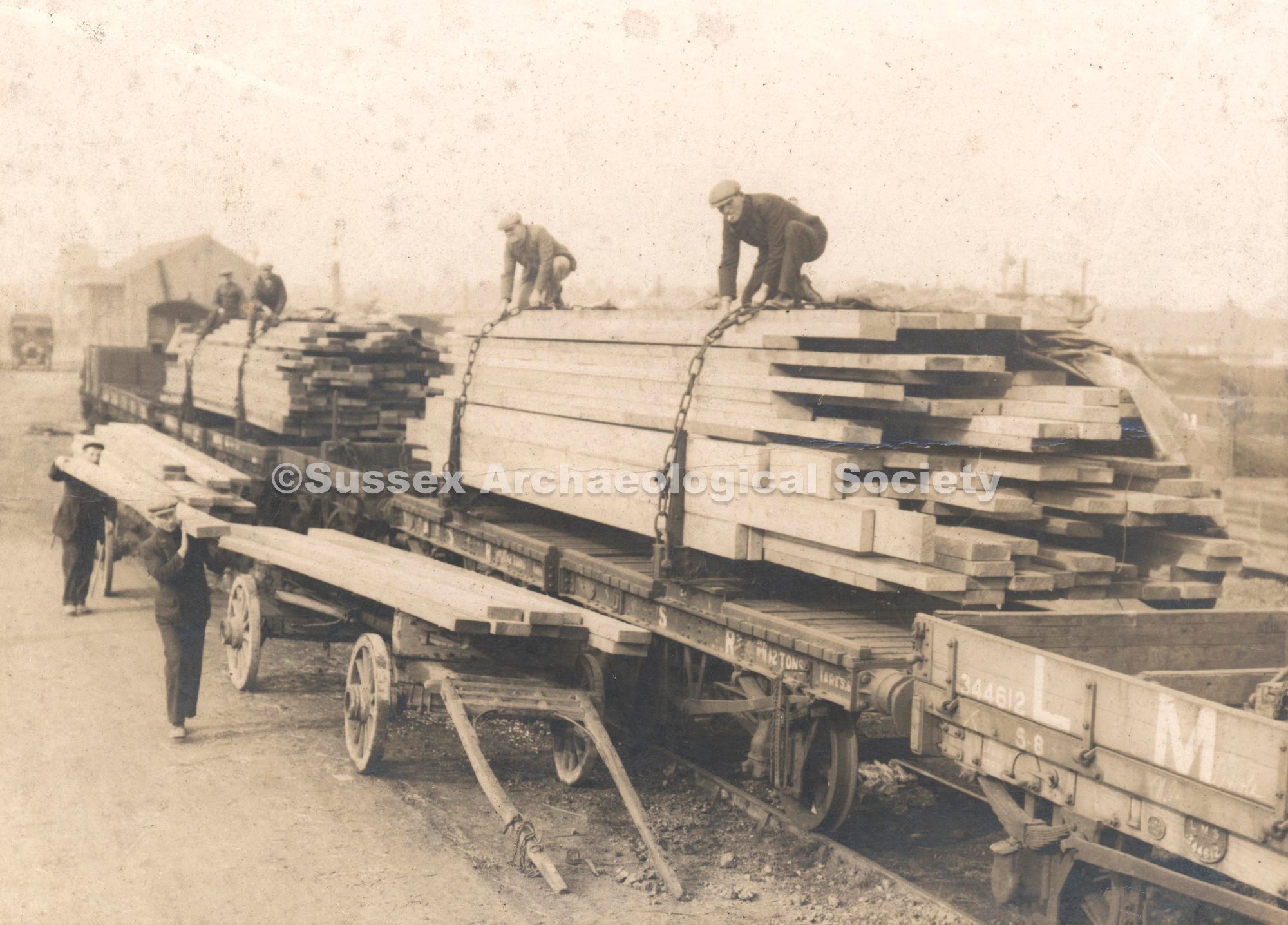
In 1952, I started an Apprenticeship at White and Co. The trade I was to learn was that of Wood machining, It meant, travel to Brighton Technical College twice weekly for two evening classes, and one all day class, which combined with one of the evening classes. It was a long day leaving Shoreham at 8am and returning at 10:30, all for £1 10/- weekly, no assistance with train fares. The Hourly week was 44 hours. Of course the evening classes from 7 until 9 pm were extra.
Continue reading “White & Co.”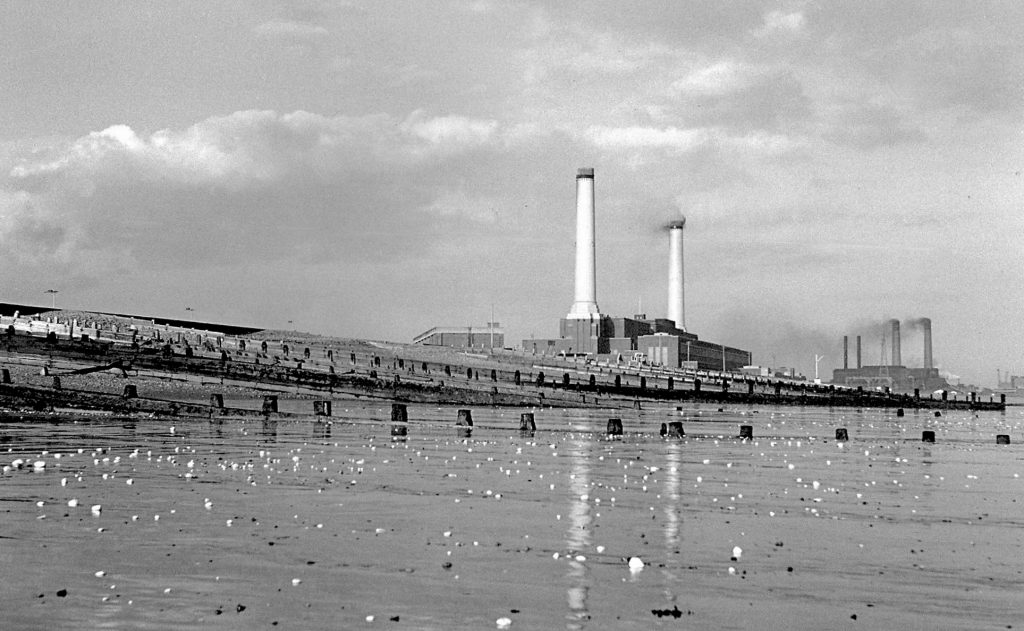
The construction on the first Shoreham power station located in Southwick commenced in in 1902 and the new station named Southwick opened in 1906. There were three M.V. turbo-alternators, each 1.8 MW running at 1500 r.p.m., 8 kV, 50 Hz with a 1 hour overload capacity cf 33% . The new station was connected by five 8 kV cables to the old North Road site where there were two 1500 kW rotary converters (the largest to that time) and four 500 kW motor generators. These replaced some of the earlier generators – the last of which was removed in 1908. Its site chosen because of its position on the harbour, meaning plentiful supply of water for cooling, and access to coal via the shipping route from NE England. The generating capacity of 5,470 kW. Pulverised coal boilers were installed in 1929 with similar steam conditions to the older one. The burners were located at the corners of the furnace. They were dogged with problems until an explosion in the P.F. bunker sealed the fate of the “Bin and Feeder” arrangement used.
The station was given numerous modifications and extensions, and by 1946 it had a increased capacity. Rapidly changing loads and wide range of fuels used made it impossible for the boilers to keep to steam temperature variations, leading to certain failures. The design was abandoned by the British power supply industry in the 1950s as it could not be used for the larger sizes required. By 1961 the station had an installed capacity of 190 MW. Seawater was used for condensing and cooling.
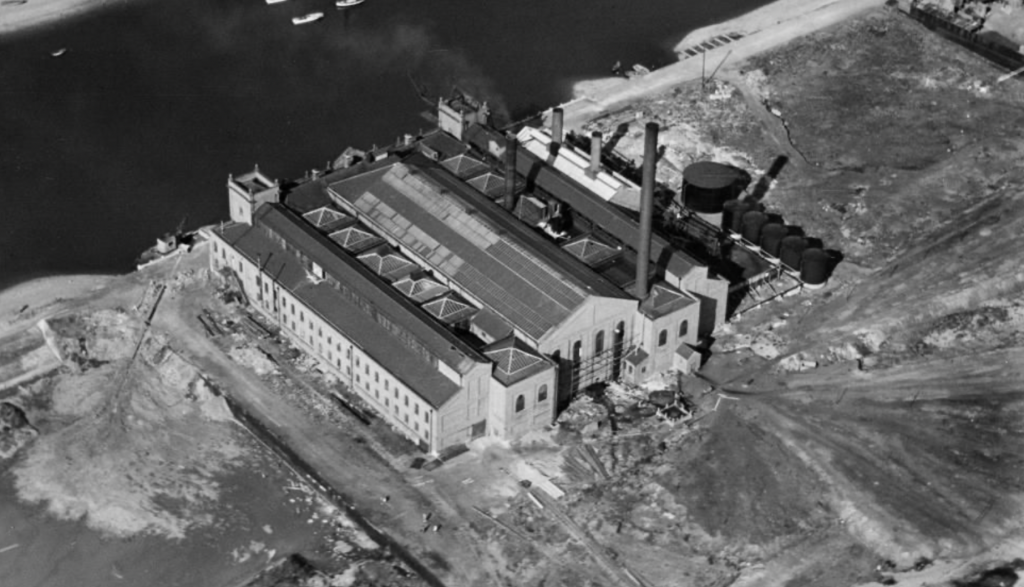
Shorehambysea.com has embarked on a new project to map the locations of the 3000+ photographs it has in the various galleries. The map will eventually have a layer of pins showing where each image was taken, a description and click-to-view link to the full size image.
The plan is to build this resource with the help of local volunteers who will add the pins to the map from the original galleries.
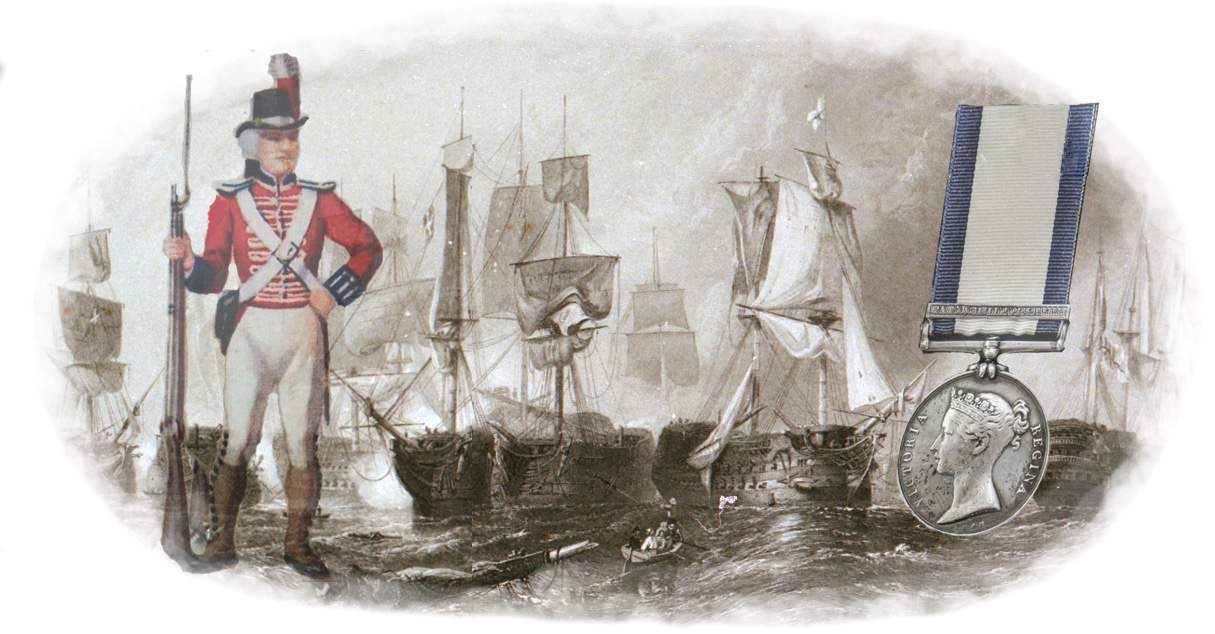
John Hindes, a Durham born man with a seagoing background, came to know Shoreham as a crewman during frequent visits in the coal-carrying sailing ships from the north east that traded with Sussex ports in the years following the Napoleonic Wars.
Continue reading “John Hindes – Naval Hero, People’s Crusader, Chartist, Rogue”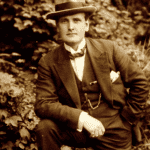
AW Wardell was an accomplished photographer and publisher of postcards from 1907 to around 1960. He was based in Brighton and latterly Worthing. You can find out much more on this excellent website. https://www.sussexpostcards.info/publishers.php?PubID=296
Bill Wardell was one of the first to publish a range of aerial scenes on postcards, pioneering an effective technique of excellent shot framing and high quality imagery from the glass plate camera he carried in the 2nd seat a biplane.

His aerial photographs of Shoreham are from 1919. It is noted he was in an Avro 504 based at the airport. Note in the first aerial photo of Shoreham (No.33) there are numerous bell tents in the SE corner of the airport – for the Canadian Air Force No. 81 Squadron stationed there in 1919, and possibly the source of Bill Wardell’s aircraft taxi to get his photographs. You may also note the two hangars of the Royal Navy seaplane base at the southern end of Ferry Road.
Continue reading “A W Wardell Photographer and Postcard Publisher”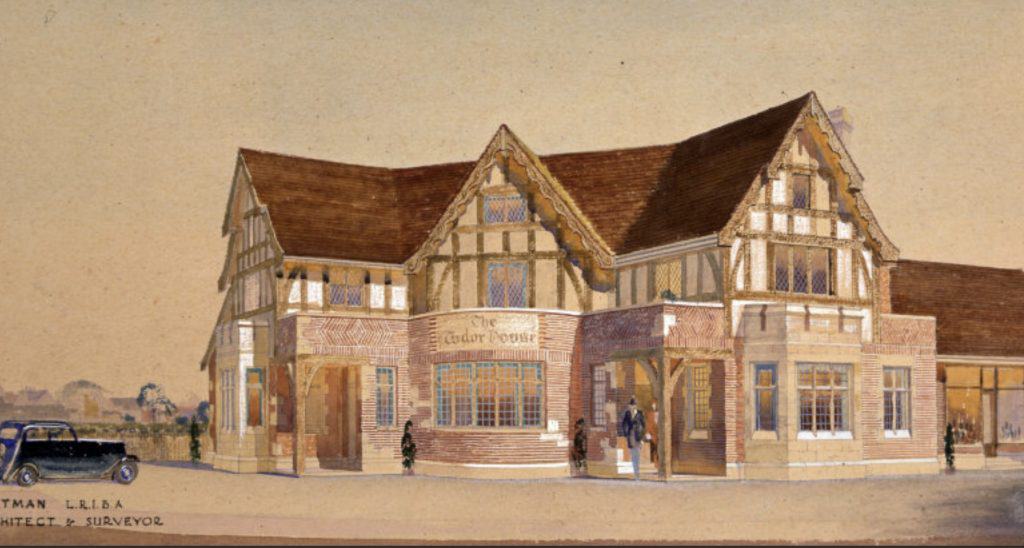
Built in 1938 The Tudor House, Ferry Road, Shoreham was designed by SH Tiltman – noted for his earlier designs of the Shoreham Municipal Airport Terminal building (1933).
Continue reading “Tudor House Pub”